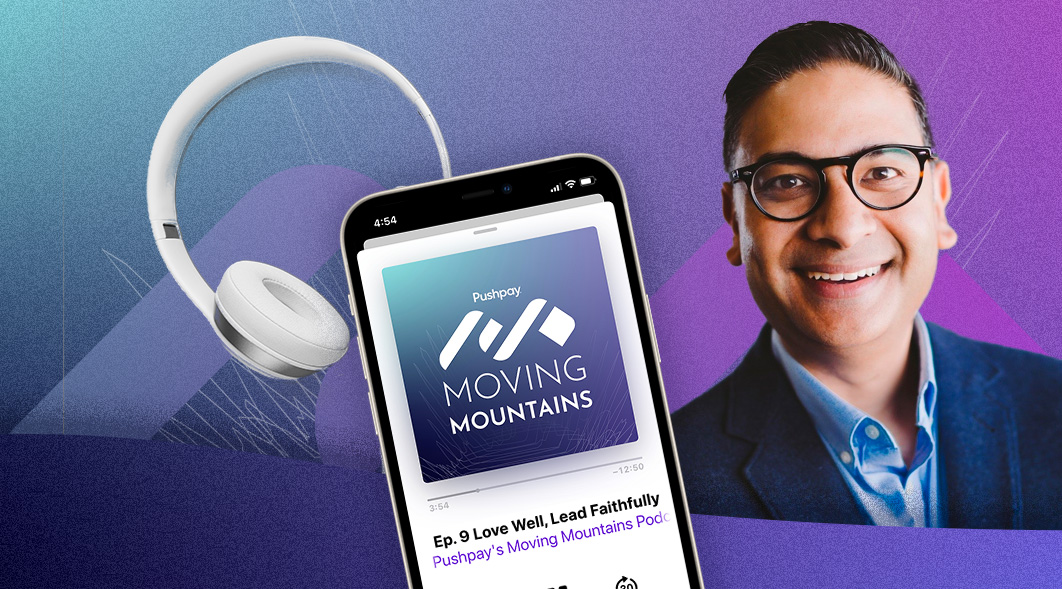Love Well, Lead Faithfully – Glenn Packiam
Love Well, Lead Faithfully
Have you found yourself in a place where you’ve struggled to love well and lead faithfully? In this episode, Pastor Glenn Packiam addresses the most pressing questions for today’s leaders, and shares personal experiences and practical strategies pastors can use to become resilient and avoid burnout in a rapidly changing world.
Resiliency During Challenges
New Life Church went through a difficult stretch 15 years ago—between leadership changes and tragedies, New Life Church leadership experienced a lot of pain in a short period. What helped was digging into their first love, and returning to worship and prayer.
During the journey towards healing, Glenn was surprised by how many people stayed with New Life and rallied to weather the crisis together as a community.
When responding to challenges, new directions and transitions ultimately lead to fatigue. Glenn’s most important lesson in resilience was to be followers of Jesus. Glenn recalls that when Jesus returns and visits Peter, he asks, “Do you love me?” three times—he doesn’t call Peter back through love for a mission, teaching, people, or miracles in this story— instead, it’s a love for Jesus. For Glenn, that love is what sustains and gives strength during difficult times.
Responding To Burnout
When people go through a crisis, Glenn points out that it stretches them to find creative ways to keep going. But after a while, the initial adrenaline rush from the crisis wears off. The surge of energy vanishes, leaving issues or hurt in its place. That is burnout.
Glenn advises responding to burnout by changing the mindset from consumer to community. In a consumer mindset, individuals want their needs served first. With a community mindset, however, the focus is instead on taking care of each other and lasting through the long haul. When communities work together, serve each other, and put others’ needs in front of their own, they can truly thrive.
Preventing Burnout Before It Happens
Henri Nouwen said, “Burnout might be the psychological phrase for spiritual death.” There are layers to burnout within our mental, emotional, and spiritual health. Spiritual burnout happens when we find ourselves giving and giving, and not taking time to be renewed ourselves.
So what can leaders do to prevent burnout?
First, leaders need to take responsibility for their own spiritual life and health. Glenn advises that leaders sometimes need to drink from a different wellin crisis years. For modern evangelical churches, a refreshing drink could be a visit to a traditional church, or a day of solitude. Glenn explains that there is only one “water table,” one Holy Spirit, and one Jesus Christ, but everyone receives refreshment in different ways.
Another way that Glenn discovered to prevent burnout is by establishing rhythms and routines for sabbath. A practical way to apply this is to create a team of pastors who share the role of teaching at the church. With a team of teaching pastors, each pastor can come into a sermon with renewed energy and fresh ideas instead of one pastor churning out new sermons week after week.
Using Tools To Reduce Burnout
Glenn believes that most people tend to think of technology as a tool to do something with. But technology has evolved so much that it’s no longer just a tool—it’s a place.
For example, Facebook, Instagram, and YouTube are places where people gather. People are on these platforms constantly (an average of 2 hours a day!), and leaders have an opportunity to reach people and meet people where they already are.
Some people fear that technology can have a depersonalizing effect, but leaders have the power to shape technology and how it’s used to be more human. Perspective matters: Church systems aren’t data management, they’re about shepherding people. Instead of seeing the notes as cold facts and figures, leaders can view them as names and stories.
We Have Hope Beyond Burnout
When faced with burnout or stress, Glenn reminds leaders that we all have hope for this life and beyond. The reason for hope is that Jesus has risen from the dead.
After studying the Word, Glenn found that we are never truly in an unprecedented age. In every season, there are echoes of familiarity from other eras. The risen Jesus is still at work in His church. He is still active. So it is up to us to trust in Him and steward our moment and our community faithfully.
Listen to this episode of Pushpay’s Moving Mountains podcast and get inspired!
For more resources and help around burnout in the Church, visit:
Pastor Carey Niuewhof on Burnout
Featured Content
You May Also Like
